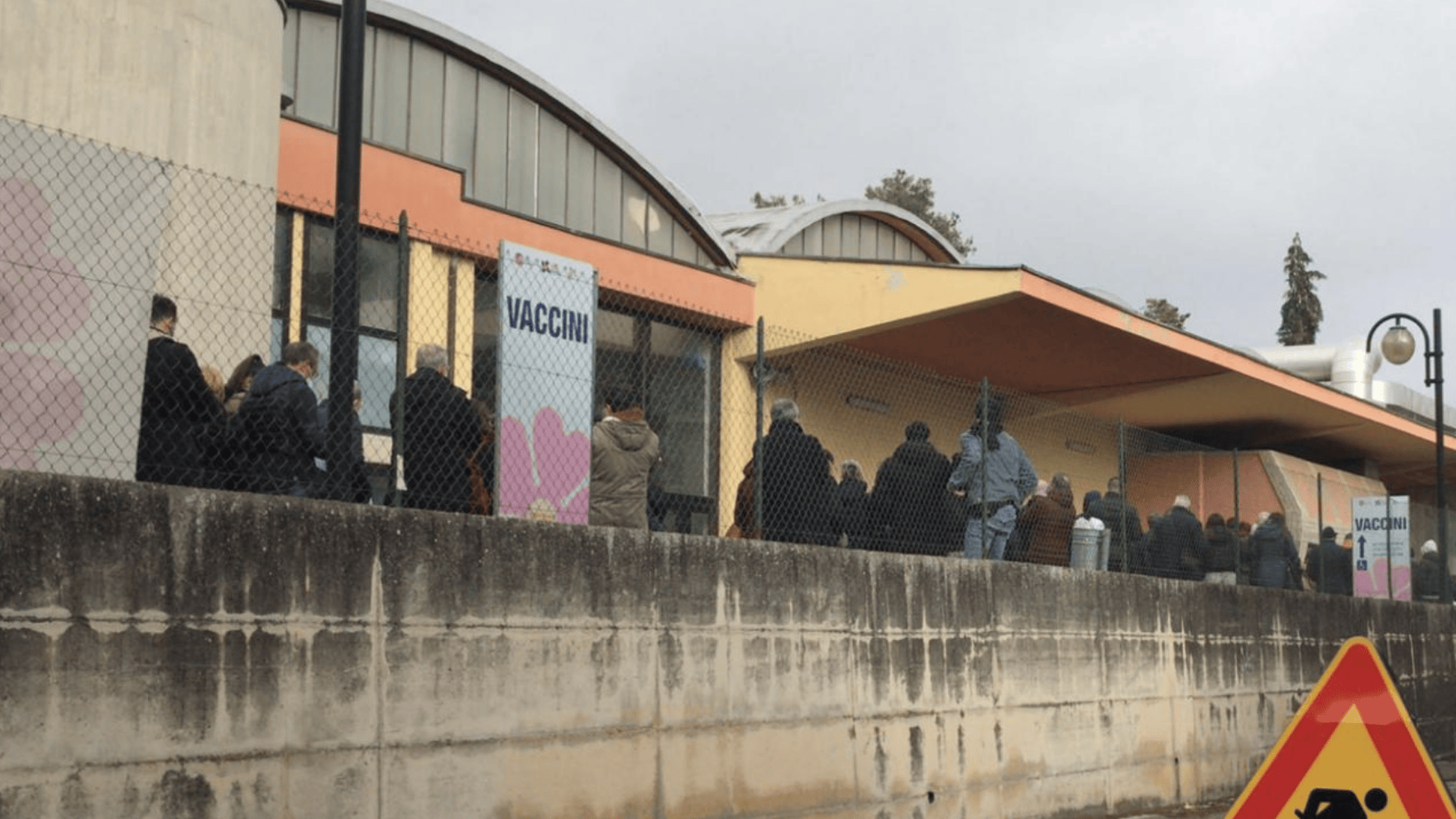Photo: Gabrovo Technical University
Science and Action: The Gabrovo Bulgarian Revival of Manchester
04.18.2022 – Gabrovo
Gabrovo, located in central Bulgaria, has long been one of the main industrial poles of the country: to re-launch, the city university launched a competency center, to restore links between academia and the business world and stimulate research and training
“Gabrovo has been known for decades as ‘Bulgarian Manchester’. Here we have a unified industrial and technical tradition, rooted in the second half of the nineteenth century. There is no shortage of challenges to return to growth nor are skills and desire. I am convinced that the Center of Competence will be able to make an important contribution.”
The words of Ilya Zilizarov, Rector of the Technical University of Gabrovo, do not hide leaps of optimism, balanced by the realism of those who are accustomed to analyzing reality with a critical eye.
The “Efficiency Center for Intelligent Technologies, Mechatronics, Environmental Systems and Energy Saving”, the result of a work begun in 2012 and officially opened in 2019, is one of the most ambitious projects to return to Gabrovo with the position of the industrial and technological hub that the city has long maintained in the history of modern Bulgaria.
Clinging to the northern slopes of the Balkans, in the geographical center of the country, Gabrovo has taken advantage of centuries-old artisanal traditions to establish itself, especially after independence from the Ottoman Empire, as its first and main industrial pole, thanks above all to the textile sector. The first factory was opened here in 1882, and only twenty years later, at the turn of the twentieth century, more than 20% of the entire Bulgarian industrial sector was concentrated in the city.
A tradition that did not lose its continuity after the imposition of the communist regime, which decided in 1964 to equip the city with a university center to meet the industrial needs of the region, and to revive the Gabrovo Technical University.
With the collapse of the socialist political and economic system, Gabrovo also, like all of Bulgaria, had to face a difficult and painful transition, with the closure or downsizing of the industrial giants that had developed in decades of programmed economy, such as the combinat “Capitan Diado Nikola”, long the largest Producer of plastic items in all Balkan countries.
Despite the difficulties, Gabrovo did not lose his industrial career, and today 50% of employees still work in this sector. “From our point of view, one of the fundamental links has been revealed, that between the university world and the world of entrepreneurs who want to re-launch themselves with innovative ideas,” says Professor Zelizarov in the bright meeting room of the Competence Centre.
That is why, about ten years ago, the idea of launching a Center of Excellence capable of revitalizing scientific and industrial skills was born in Gabrovo. It was a long way to go, but thanks to European funding too [vedi box]in 2019 we reached the opening of the Competence Center, which is located on the heights behind the city, in what for many decades was a private leisure and holiday facility, intended for BCP leaders, then moved to the municipality and then made available to the university.
The center includes fourteen laboratories, equipped with the latest research and analysis equipment, and in many cases unique to both Bulgaria and the entire Balkan Peninsula. The laboratories serve several purposes at the same time: first of all there is scientific research with new tools that have enabled the active researchers at the center to conduct experiments and produce scientific publications.
Secondly, the possibility of involving university students and giving them a unique opportunity to combine theoretical studies and the possibility of gaining experience with the latest generation of machines and technologies.
“This possibility, unfortunately, has so far been severely limited by the Covid-19 pandemic, which has forced us to move a significant part of our training activities online,” says Professor Plamen Tsankov, Vice Rector for Scientific Research and Head of the Laboratory. for the analysis of luminous objects. “Of course, once things get back to normal, students will be able to come back. In the meantime, we’ve already seen that practice in laboratories motivates students perhaps more than any other educational activity.”
The target will soon include high schools in the city, especially those with a technical and vocational career. “The effect is also psychological: with the opening of the center, many young people see that things are also moving in Bulgaria, that there is a future for them even at home,” the university president argues with conviction. “Inspiring students is the single most important investment we can make for our community.”
Despite the difficulties caused by the epidemic, some laboratories have already developed a fruitful relationship with companies operating in the Gabrovo region: such as those led by Borislav Stoyanov, researcher and assistant at the Industrial Design Chair, which provides machines for “electron beam welding”, a technology that allows The possibility of welding with high accuracy even between different metals.
“This technology has been developed mainly in sectors such as aviation and has applications mainly in the military industry. That is why, so far, at least in Bulgaria, it has remained out of the reach of civilian companies and with limited financial resources,” it explains. Stoyanov. “It is possible today and some companies have already requested our support, such as a company that produces precision medical instruments for the operating room.”
To take advantage of the possibilities offered by the center, there are not only private companies, but also public entities. “Currently, our laboratory for luminous objects is helping the Gabrovo municipality to implement the project of general modernization of public lighting, testing the quality and characteristics of the new equipment,” says Professor Tsankov. “Until now, the only way to implement it was to involve centers in Sofia or outside Bulgaria, but now our laboratories want to establish themselves as a research and service center for our entire region, and beyond.”
The laboratory led by Professor Tsankov will soon be accredited to EU standards. “I am convinced,” he adds, “that this will give us a boost, and significantly increase interest in our services.” The prolonged health emergency related to Covid-19 has slowed down the center’s activities: an online platform has been created specifically to get back to work, facilitating communication between the center and the business world.
The optimism and entrepreneurship with which the residents of Gabrovo are known does not cancel out the many challenges that must be faced in order to relaunch the city. Despite the relatively lively economy and undeniable beauty of the surrounding landscape, the city has lost a significant portion of its population in recent decades, from more than 81,000 in 1985 to just over 51,000 in 2019.
“Demographic processes are the main problem that must be overcome for our future,” said university president Zelizarov. “On the other hand, I remain optimistic. Structures like the center can play an essential role, focusing both the technology factor and knowledge, and help companies like Gabrovo remain viable and competitive. Because in today’s highly dynamic world” concludes the Rector, “The ability to change and adapt to the new is what really matters.”
Experience Center
The Competence Center for Smart Technologies, Mechatronics, Ecosystems and Energy Saving Systems of the Technical University of Gabrovo for the period 2018-2023 has been funded under the Operational Program “Science and Education for Smart Growth” (European Social Fund/European Regional Development Fund) in collaboration with several entities, Including Sophia Technical University, Robotics Center and Electronic Institute – BAS.
Author: Francesco Martino
Source: Balkan and Caucasus Observatory
Comment on this news
News

“Infuriatingly humble social media buff. Twitter advocate. Writer. Internet nerd.”



